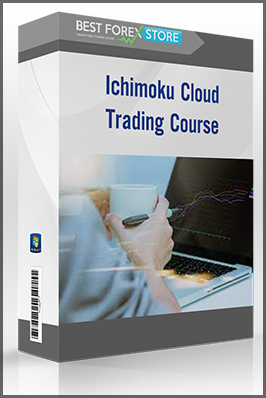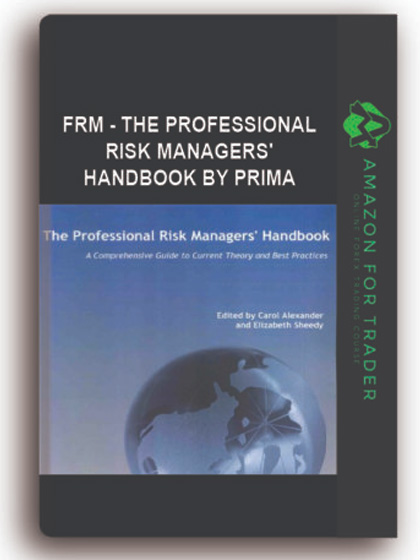Description
FRM – The Professional Risk Managers’ Handbook by PRIMA
The Global Association of Risk Professionals and the Professional Risk Managers’ International Association—a group created by former GARP volunteer officials—are two trade associations to offer certification exams.
The tests, dubbed the Financial Risk Manager exam and the Professional Risk Manager certification, require about 500 to 600 hours of study, and are passed by roughly half or fewer of those who take them, the groups say. Fees for the two-part GARP exam total $1,250, while the Professional Risk Managers’ four-part test costs $500.
An experienced risk manager can often earn the designations with a few months of study, while it can take more than a year for those who are new to the field. Both courses of study require a proficiency in understanding financial markets, the mathematical basis for risk management, current risk management techniques and behavioral ethics, experts say.
Two other groups, the Risk and Insurance Management Society and the Society of Actuaries, also offer certifications geared toward risk managers which are less focused on financial risk than the FRM and PRM.
More than 23,000 people registered for the Financial Risk Manager exam in 2009, a 69% jump over 2008, according to the group. The other groups say they have also seen an uptick in interest.
Risk manager Dave Ingram, who has FRM and PRM certifications, as well as another from the Society of Actuaries, says his certifications have helped him convince possible clients of his expertise, win new business and perform his job at a higher level.
Mr. Ingram, a vice president at Willis Re, a division of international insurance company Willis Group, says there are still times when he talks to a client who hasn’t worked with him before who needs assurance. “The certifications go a long way there,” he says.
A certification can also be a powerful résumé builder. Richard Meyers, chief executive of Richard Meyers & Associates Inc., a N.J.-based risk-management talent search firm, says that certifications such as the FRM or PRM can be the difference between getting a job and not.
“It reflects the extent of their professional commitment,” says Mr. Meyers. “As a recruiter, I’m very attracted to people that have the credentials on their résumé,” he adds.
When it comes to deciding which certification to get, factors like cost, convenience and employer considerations might be more important than course-work. That’s largely because the two main designations are nearly identical, says Mr. Meyers. “When you really get down to it, [they are] hybrids of each other.”
Other risk management designations that are more suited for enterprise risk managers—who work more broadly with risk issues across companies, rather than just in finance—include the RIMS Fellow, the Chartered Enterprise Risk Analyst, the Certified Risk Manager and the Associate in Risk Management.
“The RIMS Fellow designation combines general risk management knowledge with business courses. It’s a very broad certification,” says Mary Roth, executive director of RIMS, which stands for Risk and Insurance Management Society.
In some cases, companies offer rich incentives and rewards to achieve certifications. BDO International Ltd., an international tax and accounting firm with more than 2,700 employees, has a program that helps to pay for certification fees and classes—which can cost as much as $2,530 when study courses are included.
The company also has a “flex” program that allows employees to adjust their work hours when studying for the exams, says Jennifer Salzman, a managing director with BDO’s risk advisory services group. “We do take [designations] into account when we hire and do performance evaluations,” says Ms. Salzman.
New York Life requires that all professionals in its risk management department achieve the FRM or PRM within 18 months of their start date and covers the entire cost of the exams as well as any study materials.
We provide “the tangible help in terms of passing the exam,” says Mr. Pell. He also takes certifications into account when determining starting salaries, raises and promotions.
New York Life pays for the cost of materials, classes and exams, and with 70% of the department already holding certifications, mentors are available to those pursuing the designations, Mr. Pell says.
Corrections & Amplifications
Jennifer Salzman is a managing director with the risk advisory services group of BDO Seidman LLP, an accounting firm that is the U.S. member of BDO International Ltd., a global network of independent accounting firms. In an earlier version of this article, Ms. Salzman was incorrectly identified as an employee of BDO International, which was misidentified as an international tax and accounting firm
—–Jeremy Greenfield is an editor for FINS.com
DEFINITION of ‘Professional Risk Manager – PRM ‘
A professional designation awarded by the Professional Risk Managers’ International Association to financial risk managers who pass four exams of one to two hours each. The four exams cover financial theory, financial instruments and markets, mathematical foundations of risk measurement, risk management practices and case studies, best practices, conduct, ethics and bylaws. Successful applicants earn the right to use the PRM designation with their names, which can improve job opportunities, professional reputation and pay.
FRM, The Professional Risk Managers' Handbook by PRIMA, Download The Professional Risk Managers' Handbook by PRIMA, Free The Professional Risk Managers' Handbook by PRIMA, The Professional Risk Managers' Handbook by PRIMA Torrent, The Professional Risk Managers' Handbook by PRIMA Review, The Professional Risk Managers' Handbook by PRIMA Groupbuy.


 Brian Anderson – Quantum Chat Bots
Brian Anderson – Quantum Chat Bots Ben Adkins – The Perpetual Sales Engine
Ben Adkins – The Perpetual Sales Engine WEEKLY WIRES CLASS - SIMPLER TRADING
WEEKLY WIRES CLASS - SIMPLER TRADING ICHIMOKU CLOUD TRADING COURSE - FOLLOWMETRADES
ICHIMOKU CLOUD TRADING COURSE - FOLLOWMETRADES Till Boadella – Backend Accelerator
Till Boadella – Backend Accelerator

Reviews
There are no reviews yet.